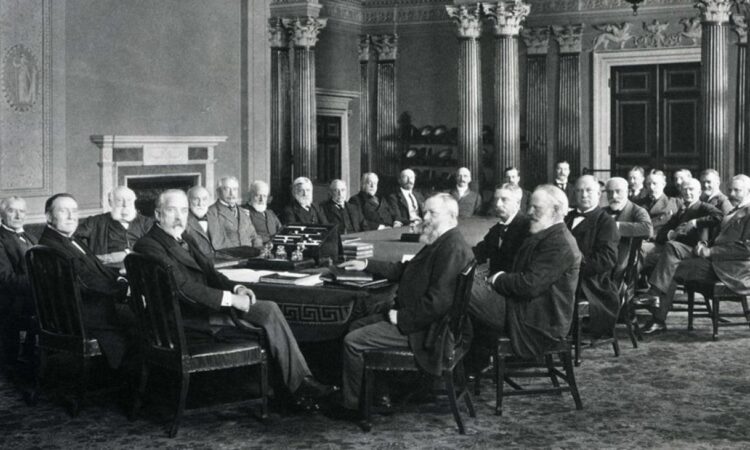
The number of banking millionaires is on the rise, according to the European Banking Authority – but women don’t seem to be benefiting.
Over 90% of the best paid bankers in the EU are men, according to figures published by the European Banking Authority (EBA) last Thursday (25 April).
For investment firms, the figure – which counts staff who earned over €1 million in 2022 – is over 96%, highlighting the scale of the financial sector’s gender pay gap.
EU regulators collect data on financiers’ high pay – driven by the concern that big bonuses can encourage risky behaviour in staff, potentially causing a repeat of the 2008 financial crisis. For the first time ever, the data now includes a male-female breakdown – and it paints a troubling picture.
The number of EU bankers earning over €1 million a year is on the rise: in 2022, there were 2,000, up from just 939 in 2014. (Both figures exclude the UK, which claimed the lion’s share of top earners before Brexit – and indeed the EU trend is partly explained by some London staff moving to the continent.)
High earners are concentrated in the EU’s largest economies, which are home to major financial centres such as Frankfurt, Paris and Milan. In the biggest of all, Germany, just 7.4% of the best-paid bankers are women.
That will come as no surprise to EU financial supervisors, who’ve long been wringing their hands over the lack of diversity in the bloc’s financial institutions.
Citigroup made a Wall Street first when it named Jane Fraser its new chief executive in 2020, and Spain’s Banco Santander can boast a female chair in Ana Botín – but banking remains largely a man’s world, at least towards the top of the ladder.
According to a 2021 study by the Bank of England that counted board members, audit chiefs and other key posts, only a little over 20% of senior UK bank staff were women, albeit that’s over double the 2001 figure.
EU banking law recognises that diverse banking boards – in terms of gender, age and background – operate more efficiently as they’re less likely to fall victim to groupthink. The European Central Bank says it takes gender balance into account when vetting senior staff appointments.
Less than ideal
A spokesperson for the European Banking Federation acknowledged female representation in the sector’s upper ranks is less than ideal.
The numbers are “far from being in good enough balance,” but “change is happening,” EBF Head of Communications Gabriel Daia told Euronews in an interview, citing a rising number of women in senior posts.
The findings are likely to make political waves, with some lawmakers already calling the evidence “worrying.”
The EBA figures “clearly show that the financial sector in the EU should take more initiatives to ensure diversity and equality on all levels”, Kira Marie Peter-Hansen (Denmark/Greens) told Euronews, citing recent EU laws intended to promote pay transparency and put more women on company boards.
For Julia Symon, Head of Research and Advocacy at lobby group Finance Watch, the rising pay packets betray the “hypocrisy” of the banking lobby.
Banks “continued to increase the remuneration of their high earning staff and paid a record amount of dividends out of profits that could otherwise be retained to strengthen their capital positions and lending capacities,” Symon told Euronews in an email.
In 2022, according to the European Commission’s statistics arm Eurostat, women earned an average 12.7% less per hour than men across the workforce – with Germany also one of the bloc’s worst performers on that measure.
CORRECTION (29 April, 16:07): corrects Symon’s name.





